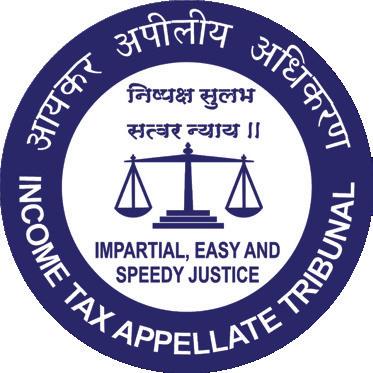A Deeper dive into RBI’s proposed norms for dealing with wilful defaulters






The Reserve Bank of India (RBI) introduced a scheme to address wilful defaulters starting from April 1, 1999. The bank has recently issued the revised instructions after reviewing existing guidelines and taking into account various rulings from the Hon’ble Supreme Court and High Courts, as well as suggestions/representations received from banks and other stakeholders.
The revised instructions are contained in the ‘Draft Master Direction on Treatment of Wilful Defaulters and Large Defaulters’. The draft Master Direction expands the scope for Regulated Entities that can classify borrowers as wilful defaulters, broadens the definition of wilful default, refines the identification process and mandates a review and finalisation on wilful default aspects within 6 months of an account being classified as a non-performing asset (NPA). The key highlights are discussed in detail below –

The provisions regarding wilful defaulters shall apply to the ‘lenders’ as defined in these Directions. Asset Reconstruction Companies (ARCs), and Credit Information Companies (CICs) shall be bound by these directions only with regard to the reporting requirements.
As per para 3(1)(m), the term “lender” means an AIFI, a bank, or NBFC which has granted a credit facility to the borrower.
As per para 3(1)(u), the term “wilful defaulter” means -
a borrower or a guarantor who has committed wilful default and the outstanding amount is Rs. 25 lakh and above, or as may be notified by the Reserve Bank of India from time to time, and
where the borrower committing the wilful default is a company, its promoters and the director(s) associated at the time of default, and in the case of entity (other than companies), persons who are in charge and responsible for the management of the affairs of the entity.
A lender must identify and classify a person as a ‘wilful defaulter’ by following the procedure:
The evidence of wilful default must be examined by an Identification Committee. Further, if the Identification Committee is satisfied that an event of wilful default has occurred, it shall issue a show-cause notice to the borrower/ guarantor/ promoter/director/persons who are in charge and responsible for the management of the affairs of the entity, and call for the submissions.
Once the submissions are reviewed and approved, the Identification Committee must make a proposal to the review committee for classification as a wilful defaulter, providing written explanations for the decision.
The borrower/guarantor/promoter/director/persons who are in charge and responsible for the management of the affairs of the entity must be informed about the proposal to label them as wilful defaulters along with the reasons.
An opportunity must be provided to the borrower, guarantor, promoter, director, or responsible individuals to submit a written response within a reasonable period to the Review Committee.
The Review Committee will evaluate the proposal from the Identification Committee along with any written representations received before making a decision.
The Review Committee must provide an opportunity for a personal hearing to the borrower, guarantor, promoter, director, and those responsible for managing the entity’s affairs. However, if they choose not to attend or don’t avail themselves of this opportunity, the Review Committee must assess all facts or available information, and then take a decision based on the Identification Committee’s proposal.
The Review Committee shall pass a well-explained order and the same must be communicated to the wilful defaulter.
A non-whole-time director, including an independent director/nominee director, shall not be considered a wilful defaulter unless it is conclusively established that:
The wilful default by the borrower or the guarantor has taken place with their consent or connivance or
He/she was aware of the wilful default by the borrower or the guarantor, as revealed from the proceedings recorded in the minutes of the meeting of the Board or a Committee of the Board, but failed to record his/her objections to the same.
The lender must assess the ‘wilful default’ aspect in all accounts with an outstanding amount of Rs. 25 lakhs and above or as may be notified by the RBI, and complete the process of classification/declaration of the borrower as a wilful defaulter within a period of 6 months of the account being classified as NPA.
There are certain measures which can be taken by the lenders. Such measures are as follows:















Criminal
: Based on the facts and circumstances of each case, lenders can examine whether criminal action against wilful defaulters under the provisions of the applicable law, is warranted.
The lenders must formulate a non-discriminatory board-approved policy that clearly sets out the criteria based on which the photographs of persons classified and declared as wilful defaulters shall be published.









No additional credit facility must be granted by any lender to a wilful defaulter or any entity with which a wilful defaulter is associated. Further, the bar on additional credit facility shall be effective up to a period of one year after the name of the wilful defaulter has been removed from the List of Wilful Defaulters (LWD) by the lender.
Wilful defaulters will not be eligible for restructuring of credit facility.
The lender must incorporate a covenant in the agreement while extending credit facility to a borrower that it shall not induct on its board a person whose name appears in the List of Wilful Defaulters.
The lender must, wherever warranted, initiate legal action against the borrowers/ guarantors for foreclosure/ recovery of dues expeditiously.
The lender must put in place a transparent mechanism for the entire process of identifying wilful defaulters to ensure the fair application of penal provisions and eliminate the scope for discretion.
The lender shall require their internal auditors to specifically look into adherence to instructions for classifying a borrower as a wilful defaulter. Further, the Audit Committee of the lender shall periodically review the cases of wilful default and recommend steps to be taken to prevent such occurrences and their early detection should these occur.
The provisions regarding large defaulters shall be applicable to all entities regulated by the Reserve Bank, regardless of whether they are considered ‘lenders’ or not under these Directions.
All regulated entities, including ‘lenders,’ must regularly share information with credit information companies (CICs) about large defaulters. This information includes a list of accounts with pending lawsuits from large defaulters and a list of accounts from large defaulters where lawsuits have not been filed.
Further, all lenders are required to submit at monthly intervals, information to all CICs in respect of the wilful defaulters:
a) A List of Wilful Defaulters (LWD) of suit-filed accounts
b) A List of Wilful Defaulters (LWD) of non-suit filed accounts
Any account included in LWD, where the lender has entered into a compromise settlement with the borrower, shall be removed from the LWD only when the borrower has fully paid the compromise amount. Till such time as only part payment is made, the name of the borrower shall not be removed from the LWD even if the outstanding amount becomes less than the threshold of Rs. 25 lakh or as notified by the Reserve Bank of India from time to time.
The sale to other lenders/ ARCs must not be treated as recovery, as the loan amount is not yet recovered. The “transferee” lenders/ ARCs must continue to report the account as a wilful defaulter until the balance remaining to be recovered in their account plus the amount written off by the “transferor” lender falls below the threshold of Rs. 25 lakh or as notified by the Reserve Bank of India from time to time.
In case an account is included in LWD and has subsequently undergone a resolution, the name of such a wilful defaulter must be removed from the LWD after implementation of the resolution plan under IBC or aforesaid prudential framework.
The recent proposed revisions by the RBI to the ‘Treatment of Wilful Defaulters and Large Defaulters’ guidelines mark a significant step towards enhancing accountability and transparency in managing defaulters within the financial sector.
The updated framework introduces a meticulous process for identifying and classifying wilful defaulters, involving various committees and opportunities for the accused to present their case. Further, it grants lenders the authority to take punitive measures against defaulters, including the initiation of criminal proceedings, public disclosure of their photographs, and the imposition of restrictions on their access to additional credit facilities.
This move not only enhances the RBI’s ability to address financial misconduct but also sends a strong message that wilful defaulters will face severe consequences, fostering a culture of greater discipline and responsibility in the lending ecosystem.




Our mission at Taxmann is ‘Spearheading the pursuit of expertise & authenticity’. We at Taxmann strive to provide authentic and fastest reporting of information. We are proud to call ourselves the #1 source for everything on Tax and Corporate Laws in India. Our domain knowledge of more than 60 years has helped us in being trusted by more than 500K legal professionals across the country.
Taxmann Alliance is the only publishing house in India with complete backward and forward integration, right from self-owned paper printing unit to in-house research and editorial team, and finally reaching the readers through its own distribution network all across India. The group has also ventured into the technologies division since 2007.
Taxmann Alliance consists of four independent verticals:
Taxmann Research & Editorial comprises of an enthusiastic team of over 200 Legal associates. They are responsible for keeping the readers abreast of the latest developments in the judicial, administrative and legislative fields in the form of authentic articles and updates.
At Taxmann, we believe in marketing our products through various refined sales channels, with a diverse network of Dealers & Distributors and an in-house marketing team.
A quick preview of the strength of our sales is listed below:
Tan Prints has been carrying out specialized printing jobs since the 1980s in their beautifully landscaped facility spread over 10,000 sq. meters. Tan Prints has a strong presence in Nigeria, Ghana, Ethiopia, Rwanda, Uganda and Kenya. It not only caters to reputed Book Publishers but also Governments, Universities and Institutes.
Taxmann’s excellent team of professionals offers the best in class end-to-end website and App designing, development and maintenance solutions.
Research & Editorial
21/35, West Punjabi Bagh, New Delhi – 110026
Phone : +91-11-45662200 | E-mail : editorial@taxmann.com
Printing - Tan Prints
44 Km. Mile Stone, National Highway, Rohtak Road Village Rohad, Distt. Jhajjar (Haryana)
Phone : 01276-278155-56 | Mobile : 9896514100 | E-mail : sales@tanprints.com
Technologies
59/32, New Rohtak Road, New Delhi - 110005 (India) | Phone : +91-11-46462222 | E-mail : technologies@ taxmann.com
Delhi: 59/32, New Rohtak Road, New Delhi - 110005 (India)
Tel: +91-11-45562222 | For Support Enquiry: support@taxmann.com
For Sales Enquiry: sales@taxmann.com | Skype ID: taxmannindia
Mumbai: 35, Bodke Building, Ground Floor, MG Road, Opp. Mulund Railway Station, Mulund (W), Mumbai - 400080
Tel: +91-022-25934806/07/09, 25644807 | Mobile: 09322247686, +91-9619668669
Email: sales.mumbai@taxmann.com, nileshbhanushali@taxmann.com
Ahmedabad: 7, Abhinav Arcade, Ground Floor, Nr. Bank of Baroda, Pritam Nagar Paldi, Ahmedabad - 380007
Tel: +91-079-26589600/02/03 | Mobile: +91-9909984900, 9714105770, 9714105771
Email: bdurgaprasad@taxmann.com, sales.ahmedabad@taxmann.com
Hyderabad: 4-1-369-Indralok Commercial Complex Shop No. 15/1 - Ground Floor, Beside Hotel Jaya
International Reddy Hostel Lane Abids Hyderabad - 500001
Mobile: +91-9391041461/09322293945 | Email: bdurgaprasad@taxmann.com, sales.hyderabad@taxmann.com
Pune: Office No. 14, First Floor, Prestige Point, 283 Shukrwar Peth, Opp.Chinchechi Talim, Nr. BSNL office, Bajirao Road, Pune - 411002
Mobile: 9822411811, 9834774266, 9322293945 | Email: sales.pune@taxmann.com
For Contact & Assistance:
Tel. : +91-11-45562222 | E-mail : support@taxmann.com, sales@taxmann.com
www.taxmann.com Follow us
